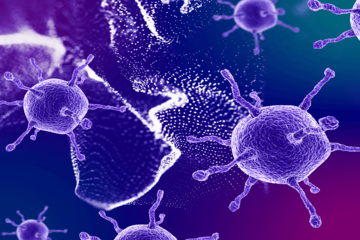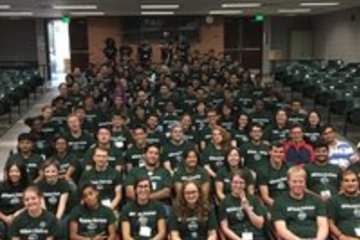Results for "data"
21 Results
Sample Article
Healthy diet — Normal website URL
The Only Diet Plan That Ayurveda Recommends (Men & Women) — Normal YT video URL
Time management skills ? — YT shorts
Very Creative Art Ideas With Leaf 😍 — Facebook URL
Jonathan Slater on Twitter / X — Twitter shorts
By:
Anne miller New vijayalaxmi santosh mhetre mali
Friday, Aug 29, 2025
HEALTH AND NUTRITION
No Preview Available
Leave a comment
Healthy Diet Plan
Key Components of a Healthy Diet Plan
Fruits and Vegetables: Aim to eat at least five portions of a variety of fruits and vegetables daily.
Fiber-Rich Foods: Base meals on high-fiber starchy carbohydrates like potatoes, whole grains, bread, and pasta.
Protein Sources: Include sources like beans, pulses, fish, eggs, and lean meat in your diet.
Healthy Fats: Choose unsaturated oils and spreads, and consume them in moderation.
Hydration: Drink plenty of fluids throughout the day, aiming for at least 6 to 8 glasses of water.
Limit Unhealthy Foods: Cut down on saturated fats, sugar, and salt.
By:
Anne miller New vijayalaxmi santosh mhetre mali
Friday, Aug 22, 2025
HEALTH AND NUTRITION
Leave a comment
Translation Networks in the Decolonising World
Translation Networks in the Decolonising World, 1950s–1970sKing's College, University of Cambridge | 24–25 April 2026
The 1950s to the 1970s was a transformative period marked by anticolonial struggles, national independences, and non-aligned solidarities across Africa, Asia, and Latin America. These groundbreaking political shifts went hand-in-hand with profound cultural and ideological exchanges across continents. Central to these exchanges were translation networks—dynamic, often informal systems through which ideas filtered across linguistic and national boundaries. These networks not only facilitated the dissemination of anticolonial and more broadly revolutionary thought, but also helped forge new identities and solidarities in a bipolarised world. From clandestine literature, revolutionary manifestos, political speeches, to broadcasting and print journalism, translation operated as an essential tool for decolonisation. Yet, despite their significance, these translation networks remain underexplored. This conference seeks to shed light on the multifaceted role of translation in the decolonising world between the 1950s and 1970s. It seeks to examine how translation—whether cultural or linguistic, diplomatic or political—served as a bridge for ideas, theories, and strategies that fueled anticolonial struggles, fostered regional solidarities, and contributed to the dissemination of counterhegemonic discourses. This conference seeks to redress narratives that often overlook translation’s role in shaping political and cultural transformation by foregrounding the networks of translation that enabled dialogue between communities, intellectuals, and revolutionary movements. It aims to explore how translation practices facilitated the circulation of anti-colonial ideas, shaped notions of identity and sovereignty, and influenced the formation of new political and cultural realities in the decolonising world.
We invite proposals for papers of relevance to the subject of the conference, which might include considerations of:
The role of translation in the dissemination of anticolonial thought;
The translation of revolutionary texts (e.g., manifestos, poetry, political speeches, print journalism) as well as oral traditions and indigenous knowledge that supported anticolonial narratives;
The role of translation as a tool for transnational and transcontinental solidarity;
The role of transnational and transcontinental alliances (e.g., the Non-Aligned Movement) in facilitating ideolog
The role of translation in the dissemination of anticolonial thought;
The translation of revolutionary texts (e.g., manifestos, poetry, political speeches, print journalism) as well as oral traditions and indigenous knowledge that supported anticolonial narratives;
The role of translation as a tool for transnational and transcontinental solidarity;
The role of transnational and transcontinental alliances (e.g., the Non-Aligned Movement) in facilitating ideological exchanges and collaborations;
The role of translation in national, transnational, and transcontinental conferences, festivals, and organisations;
The translation and/or adaptation, reinterpretation, and dissemination of Afro-Asianism, Marxism, nationalism, Pan-Africanism, and/or Pan-Arabism;
The influence of radio, print, and emerging broadcasting or recording technologies in spreading anticolonial ideas in translation;
The role and agency of individual translators in establishing transnational and transcontinental connections;
Comparative perspectives on the intersection of translation and decolonisation in Africa, Asia, and Latin America.
The conference will be in-person at King’s College, University of Cambridge.
To submit a proposal, please include in one document the following information: proposals for 20-minute papers (300 words), paper title, and participant(s) biography (100 words).
Please submit proposals by e-mail to Georgia Nasseh (gsn25 [at] cam.ac.uk).
The deadline for submissions is 15 October 2025.
Contact Information
Dr Georgia NassehResearch Fellow in the Literatures of the Global SouthKing's College, University of Cambridge
Contact Email
gsn25@cam.ac.ukRead more: https://networks.h-net.org/group/announcements/20122618/cfp-translation-networks-decolonising-world-1950s-1970s
By:
Scott Henderson
Tuesday, Aug 19, 2025
CULTURE AND SOCIETY
+1

Leave a comment
Article with normal youtube URL in thumbnail
Management skills are the abilities and traits needed to effectively oversee and lead teams, projects, or organizations. They encompass a range of competencies including planning, organizing, leading, and controlling, as well as interpersonal skills like communication, problem-solving, and delegation. Developing these skills is crucial for managers at all levels to improve efficiency, boost team performance, and drive business growth.
By:
Anne miller New vijayalaxmi santosh mhetre mali
Tuesday, Aug 5, 2025
CULTURE AND SOCIETY
Leave a comment
Food Pyramid -- Edited
A food pyramid is a visual representation of a balanced diet, showing which food groups to eat more or less of. It typically categorizes foods into groups and suggests the optimal number of servings from each group to maintain health. The most well-known version is the one developed by the US Department of Agriculture, which has been revised and adapted by various countries.
Key Features of a Food Pyramid:
Base:
Represents the food groups that should form the foundation of a healthy diet, consumed in larger quantities.
Apex:
Represents the food groups to be consumed in smaller amounts, typically fats, oils, and sweets.
Middle Layers:
Represent the other food groups like grains, fruits, vegetables, and protein sources, with varying recommendations for daily intake
By:
Anne miller New vijayalaxmi santosh mhetre mali
Thursday, Jul 10, 2025
WATER, ENERGY, AND THE ENVIRONMENT

Leave a comment
Agile methodology is a project management framework that emphasizes collaboration, flexibility, and
Iterative: Teams reflect and adjust their strategy after each sprint.
Collaborative: Teams work together daily throughout the project.
Adaptable: Agile methodology can be used by any team.
Responsive: Agile methodology prioritizes responding to change over following a plan.
Incremental: Projects are broken into phases, or sprints, that are carried out in short-term development cycles.
Values: Agile methodology is based on four main values: individuals over processes and tools, working software over comprehensive documentation, customer collaboration over contract negotiation, and responding to change over following a plan.
Communication: Face-to-face conversations are the most effective method of communication.
Feedback: There is constant feedback, allowing for team members to adjust to challenges as they arise
By:
Vijayalaxmi Santosh Mhetre
Monday, Oct 21, 2024
AGRI-FOOD SYSTEMS

Leave a comment
Data Tag Implementation
super admin edit 1
As a result of the behaviors listed above, students with ADHD are at greater risk of academicdifficulties, social/emotional issues, and limited educational outcomes.
The degree to which attention impacts a student’s academic and social performance is related to the interactions between the student’s academic and behavioral needs and the environmentaldemands.
Therefore, it is not unusual for the student to perform differently across settings.
For example, a student with ADHD may experience academic success in elementary school;however, when he enters middle school, the increased academic and organizational demandsmay increase his need for additional academic and behavioral supports.
By:
Jon Doe
Tuesday, Mar 14, 2023
HEALTH AND NUTRITION

Leave a comment
Data Tag Implementation
With Amazon S3 bucket policies, you can secure access to objects in your buckets, so that only users with the appropriate permissions can access them. You can even prevent authenticated users without the appropriate permissions from accessing your Amazon S3 resources.
By:
Hansa Hraos
Monday, Feb 6, 2023
AGRI-FOOD SYSTEMS
+1

Leave a comment
Data Tag Implementation
Credentials Creating
The new batch of students entering the Faculty of Science under the Biology stream is designated with a set of courses under several combinations comprising three principal subjects. Based on the combination selected by the students, they would follow courses offered by different departments where the Department of Molecular Biology and Biotechnology
Studies on hydrolytic enzymes from carnivorous plants.
Genetic diversity of Rhizobia
Evaluating the species limits of endemic plant Genera by DNA barcoding
Genetic diversity plants
Molecular Biology is the field of biology that studies the composition, structure, and interactions of cellular molecules such as nucleic acids and proteins that carry out the biological processes essential for the cell's functions and maintenance.
By:
Hansa Hraos
Monday, Feb 6, 2023
CULTURE AND SOCIETY
+1

Leave a comment
Data Tag Implementation
At Scrum.org, we have two webcast series that can help you continue your learning. ScrumPulse is an educational webcast series designed to help those new to Scrum and those with experience
By:
Kashish shah
Thursday, Feb 2, 2023
EDUCATION

Leave a comment
Data Tag Implementation 2
Color-Coded Folders: Provide the student with color-coded folders to helporganize assignments for different academic subjects.
By:
Anne miller New vijayalaxmi santosh mhetre mali
Tuesday, Jan 11, 2022
CULTURE AND SOCIETY

Leave a comment
Data Tag Implementation (Article for QA)
The following organizational supports are particularly useful. Students should be taught to use these tools through teacher modeling and guided practice with feedback before being expected to use them more independently.
By:
Anne miller New vijayalaxmi santosh mhetre mali
Tuesday, Jan 11, 2022
YOUTH EMPOWERMENT



Leave a comment